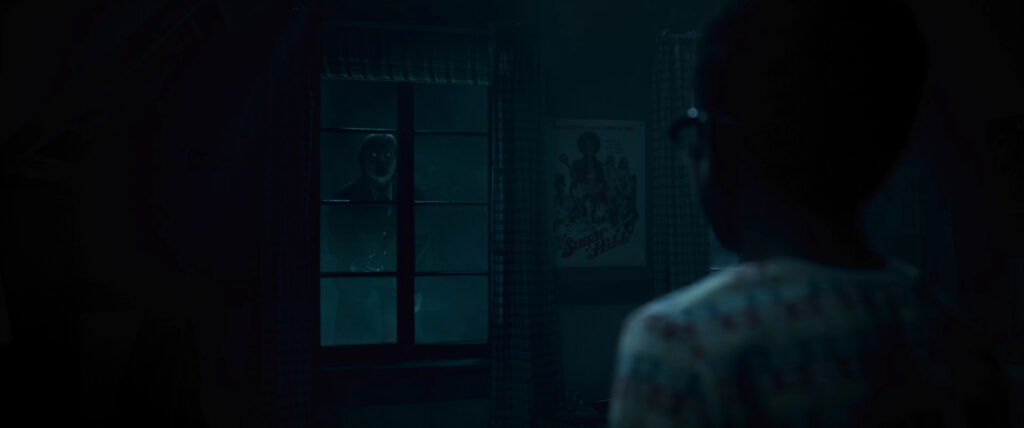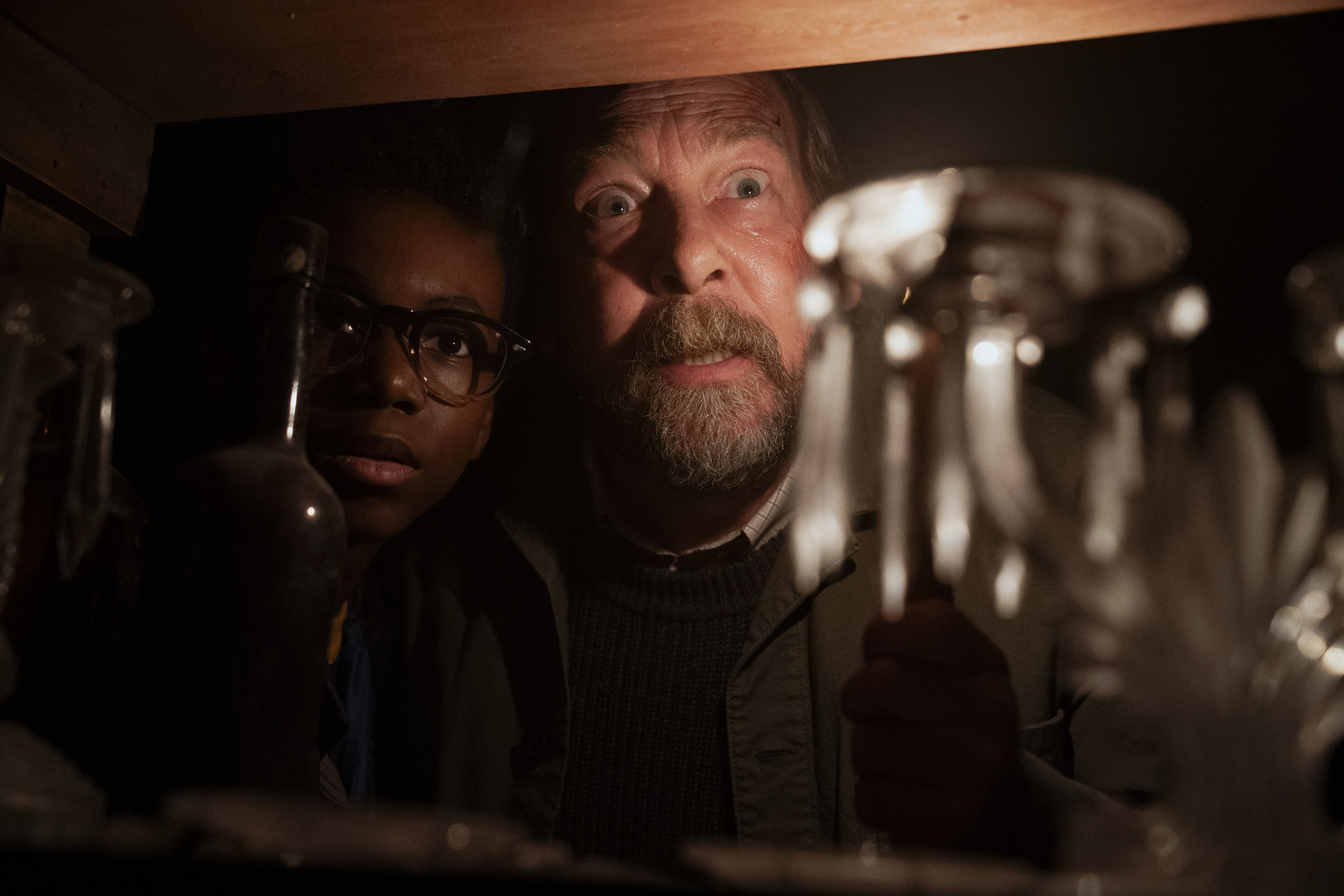Killer clowns, killer dolls, killer nuns — filmmaker Gary Dauberman is no stranger to horror beasties. But after writing two It movies and directing Annabelle Comes Home, he was ready for a change. Not a huge one, though: He really wanted to turn Stephen King’s renowned vampire book ’Salem’s Lot into a bloodsucking good time at the movies.
Published in 1975, ’Salem’s Lot was King’s second novel, and it’s full of the elements that came to define his work: a small-town Maine setting, a sprawling cast of less-than-perfect townsfolk, and a supernatural threat that floods their normal lives with darkness. The story of writer Ben Mears returning to his hometown to investigate an old murder house, only to stumble across a rising vampiric overlord, was adapted into a legendary TV miniseries in 1979. For Dauberman, the book and the small-screen adaptation were essential in shaping his love for horror, which only raised the stakes (ahem) when the chance to sink his own fangs (ahem ahem) into King’s work came up at Warner Bros. Pictures.
Dauberman assembled a killer cast for Salem’s Lot, including Pilou Asbæk, Bill Camp, Alfre Woodard, and Lewis Pullman (soon to be seen in Marvel’s Thunderbolts*), but the hard work of slimming down one of King’s lengthier books was still a challenge. Ahead of the film’s Oct. 3 premiere on Max, Polygon spoke to the writer-director about tackling the material and going back to the basics to make vampires cool again.
Polygon: Was the idea of adapting ’Salem’s Lot born right out of the success of It? Was the hope for a spiritual continuation?
Gary Dauberman: Conversations about adapting King’s material were happening even before It. I’m a huge fan, and growing up, it was always, This would make such a great movie. This would make such a great TV show. Of course, with the success of It, everybody suddenly wanted to adapt Stephen King, and rightly so. But meanwhile, [this project has] been happening for years and years and years. Stand by Me is one of my all-time favorite movies — Misery — these are genuine classics — The Shining — that come from the mind of Stephen. And so I knew because of It that they had the rights to ’Salem’s Lot. It was going to be, I think at the time, a TV series. And I brought in the conversation of making a movie, and it grew from there.
When I was a kid, the miniseries — Georgie in the sewer [in the It miniseries], that was a big deal to me, watching that as a kid. And Danny tapping on the window in the [Salem’s Lot] miniseries from ’79, that was a huge influence on me. So I thought, Man, I would love to see that again, revisit it. And it’s been so influential in so many of the things that have come since that I don’t think people realize how influential that book is.
What possibilities did you see in adapting ’Salem’s Lot right now, in terms of making it fresh or relevant?
I was looking at it from: I hadn’t seen a really great vampire movie in a while, and I was thinking about how James Wan took The Conjuring — there had been a hundred haunted house movies before the first Conjuring came out, but he took a classic genre and told it in a refreshing way, with really classic tropes. Which we hadn’t seen for a while, because everyone is trying to think, How can we do it differently? I really wanted to approach vampires [in the] classic style, rather than being like, OK, how can I subvert it somehow? Because I feel like we’ve seen that and I haven’t seen a classic vampire movie in a long time.
I started to think about the vampire movies that I love and that might not really sync up with ’Salem’s Lot. The Lost Boys is one of my favorite horror movies of all time. So there’s a lot of Lost Boys in here. Those types of things started to seep into it, which I think is OK because Stephen King is pop culture. So I just started pulling from different sources that I loved, and I felt like I had a license to do that because King has that reach on pop culture, that hold.
’Salem’s Lot is quite a sprawling book. How did you crack the adaptation as a tighter feature film? What was the challenge?
It was the same challenge I have with a lot of material. When it’s a book, there’s so much good material, it’s about whittling it down. There are so many stories that I wish I could have just branched off and told. That’s probably why it was a series before. It could’ve been an eight-hour thing. It would’ve been a fucking cool eight hours, but… what you’re doing is really distilling it down into the core elements, that core group. That’s challenging. They say “kill your darlings,” but these are my darlings because I love them, not because I wrote them. The biggest hurdles I had to jump were like, What can I lose and still keep to the spirit of the book and the story?
Given everything you needed to trim to move at this clip, what did you wind up inventing to make the film still feel cohesive?
The biggest thing I had to invent — and I’m not saying it’s better, I’m just saying I had to invent it for the movie — but there’s a portion of the book where [characters] go from house to house and kill vampires. And I had written that first, but it got long and pretty episodic. So the biggest challenge was, how could I […] have them battle in one place, as opposed to going from house to house? And I thought about community and where people gather, and I created a set-piece out of that. But I also like the metaphor of what that set-piece is saying. I do love that sequence a lot, but it’s just different from the book.
When you’re writing and directing, I imagine the task of making up cool shit is a bit of a “chicken or the egg” process of either imagining your directorial approach and writing toward that, or writing in a vacuum and directing the script. Considering that the movie gets some splashy, gory moments, were there scenes where your director brain was driving the writer brain?
One of the things I thought a lot about was the cross. Usually, you raise a cross and then the vampire snarls and goes back. I was like, OK, we’ve seen that. I wanted to make it different and make us really feel the power of faith and the power of belief and what the vampire is feeling as they’re confronted with this force. So I started to think about it being a force, so it’s like they could feel it. They get pinned back, they get blown back a little bit. The more you believe, the more powerful it is.
The glowing crucifixes, which basically become vampire kryptonite, really pop in the movie. That made me wonder, is every vampire movie a faith-based film on some level?
I think with the roots of vampires going back thousands of years, it’s hard not for everything to feel like it’s coming out of religion. But yeah, I mean, it’s in the lore itself: Stakes through the heart, crucifixes, garlic, these are the tools one uses in order to eradicate vampires. And the power of faith. And I think it’s exemplified in a character, Father Callahan in the movie, who has lost his faith, and being confronted by these undead things, these unholy things, really helps him regain it. Religion does play a big part in it, but it’s sort of working in the background.
What did you learn from It that helped you on Salem’s Lot? And did you ever think about this being a true continuation? As in, true to so much of King’s work, could this be happening in the It cinematic universe?
I do think these exist in the same world, in the same universe, without question. I mean, they do in the book. It’s one of the things I love about his work — he’s a guy who created a universe without announcing he’s creating this universe. It’s just these little Easter eggs for the people who have read his other books. You get it? If you did, that’s cool. You get a little chuckle out of it. I have Christine, the actual [evil car from King’s novel Christine], in the mechanic shop in town. I have a bunch of those types of things. I dropped in Easter eggs around town — the production designers had a ton of fun thinking about that stuff. Everything’s connected.
So does that mean the Dark Tower is out there somewhere as well?


